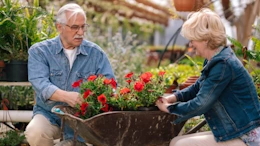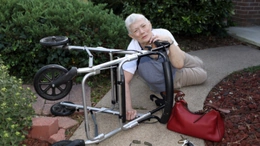How Serving Seniors Creates A Positive Impact In Communities

Working with seniors is an effective method of creating more successful and rounded communities that are healthier, more connected, and centered around caring and connectivity. As individuals grow old, one of the situations that they are likely to encounter is a feeling of loneliness, loss of mobility, or impaired thought.
Assistance in caring for the elderly not only has positive effects on the elderly but also on the people who offer assistance. It allows one to find mental growth and bonding.
Tending to the aged is a form of untold goodness not only to individuals but also to society as a whole, whether through volunteering, caring, or even giving personal time.
This article discusses the benefits of helping seniors to achieve a stronger, healthier, and more connected community.
Personal Benefits Of Serving The Seniors In Communities
Here are the personal benefits of serving seniors in communities:
Enhanced Mental And Emotional Well-Being
Working with elderly people gives meaningful satisfaction. Serving the older adults tends to make people develop a stronger level of sympathy and empathy.
Due to this emotional affiliation, there is enhanced mental health. Working with the elderly helps one feel important and valued, which improves self-esteem and emotional stability. The levels of stress and the signs of depression may be lower among the volunteers and caregivers.
Helping one to smile or just to make their day easier can give a good sense of purpose. These favorable feelings result in improved mental health conditions and a more positive attitude towards life.
Improved Physical Health Through Active Engagement
It is not always a passive work to serve seniors. Most of their activities, like assisting them to do household chores, going on walks, or organizing community events, involve body movement.
The participants also boost their physical health through the interactions, as well as the young or middle-aged ones.
The retirees who work with other elderly people have even more benefits. These people have active lives, as light exercise makes them move, makes their bodies strong, and eases the heart.
A series of minor activities, including activities at a senior center or running errands on behalf of other people, is enough to help make a lifestyle active. It also contributes to healthy aging and delays physical decline.
Cognitive Stimulation And Lifelong Learning
Engagements with seniors normally entail valuable talks, narration, and the sharing of information. Through these interactions, the brain is stimulated, and it teaches the two parties to be critical and think.
The mind stays alert when volunteers engage with seniors, interact with them using games, or talk to them.
To the involved senior citizens, the process of socializing with others keeps their memory intact and their thoughts well-arranged. It can postpone cognitive conditions such as dementia or Alzheimer's.
In the case of young people, through the life experience of a senior, their understanding gets broadened, and they can get great lessons that cannot otherwise be found in books.
Besides, the work with seniors may expose them to new spheres such as healthcare, psychology, or social work. Most of them find some hobbies that they had never experienced and become career-oriented, or help in shaping themselves by taking more schooling and training.
Renewed Sense Of Purpose And Fulfillment
A significant number of individuals struggle to find meaning in their current busy lifestyle. The goal of making a difference in the life of a person is a lucid and rewarding objective when it comes to serving the seniors.
The contribution to the fight against illness may come in the form of delivering groceries or organizing and planning care, but whatever the scale, it is valued.
The elderly people who volunteer to serve other elderly or help them with any work in the community also receive a sense of purpose in their lives. Retirement or slackening family demands occasionally cause a person to believe that he is no longer needed.
However, they feel useful once again after engaging in the service work. Such a sense of purpose contributes to emotional wellness and to happiness generally in life.
Stronger Social Connections And Reduced Isolation
Social interaction is an effective element in human wellness. Individuals working with seniors usually build a lasting relationship with them.
Such connections increase with time and build up a mutual helping support structure, which is beneficial to both parties. The seniors are not lonely, and the volunteers feel connected to their communities.
For people living alone or new in a locality, volunteering activities with the elderly can aid in the formation of new friendships. It unites the citizens with various backgrounds and fosters the mood of cooperation and generosity.
Seniors who get frequent visits or attend programs in the community have a low chance of feeling isolated. This enhanced social life results in good psychological and physical health.
Meanwhile, the younger individuals who interact with the elderly usually become emotionally mature, patient, and able communicators.
Senior care is a bridge that goes both ways across the generations. It embraces respect and understanding towards each other, thus reinforcing the social structure of the whole society.
Community And Societal Impact Of Serving The Seniors
The effects of people serving the seniors extend to the rest of the community. To start with, communities will be more supportive and inclusive. Individuals can continue living an active life in society once their seniors are well taken care of. This decreases the burden on the social services and health care systems.
In most locations, the seniors constitute an increasing percentage of the population. Their service makes sure that the communities will be ready against their future needs.
Investing in senior programs at present will help cities and towns to develop better infrastructure, create job opportunities in the sphere of caregiving and healthcare, and encourage age-friendly environments.
Moreover, civic responsibility and volunteerism are encouraged when you serve the seniors. By observing the good results of assisting the old, individuals will be more willing to resort to other community services. It brings an ethos of compassion, altruism, and collective well-being.
It also keeps culture and intergenerational knowledge. The elderly share life experiences and make the whole community richer. This culture of continuity makes younger generations understand who they are and establishes stronger links in terms of culture.
In short, the positive benefits of serving the seniors are the resulting stronger, healthier, and more connected societies. It is not only good on a human level but also leads to a sustainable solution to both the present and future needs.
Conclusion
Serving the seniors through the provision of services is beneficial to the individuals and the entire community. The act of serving seniors improves and facilitates emotional well-being, the development of relationships, and the strengthening of social systems.






















